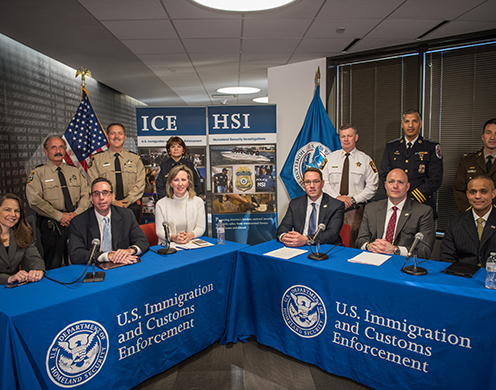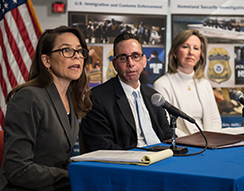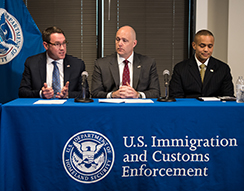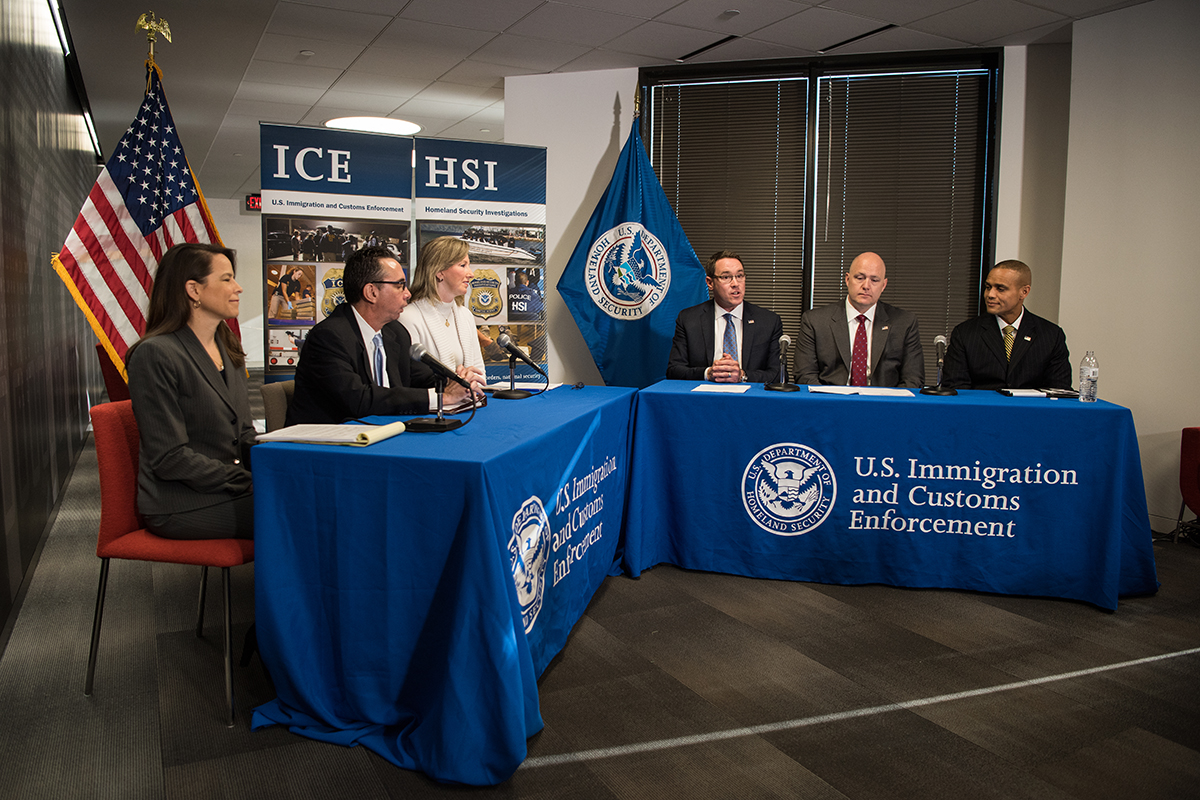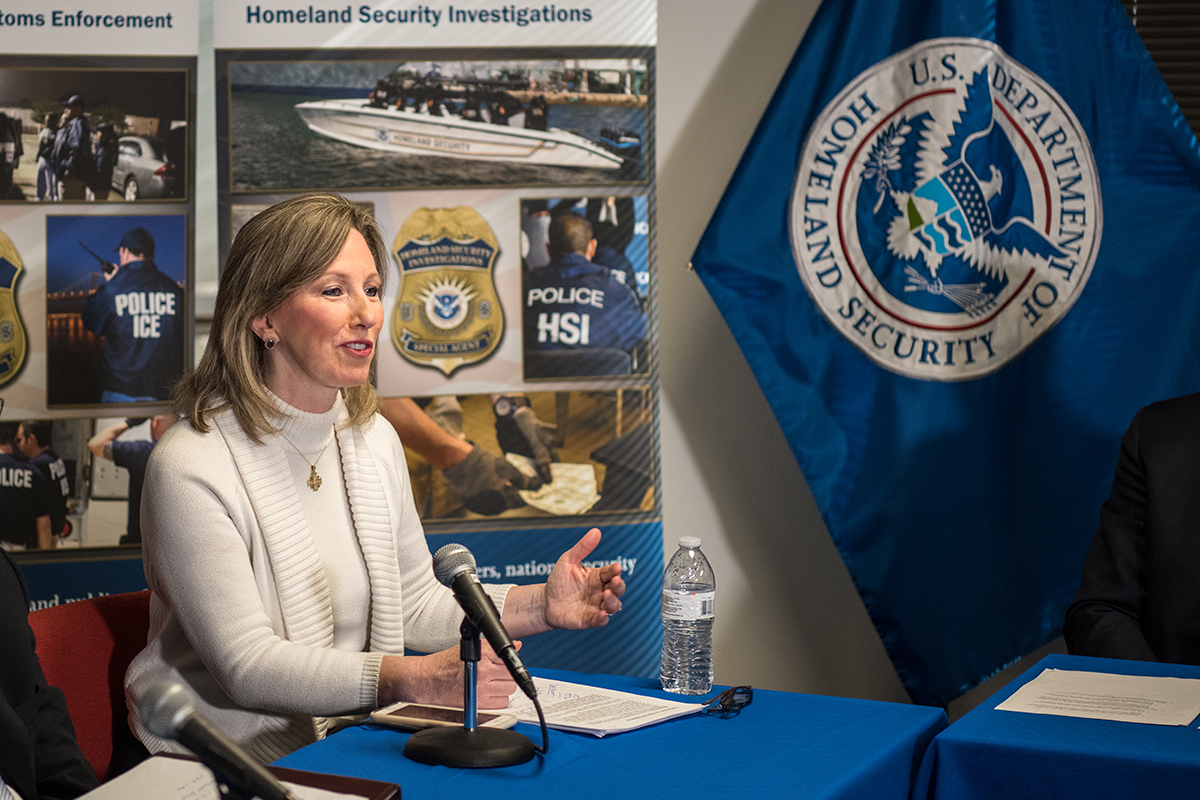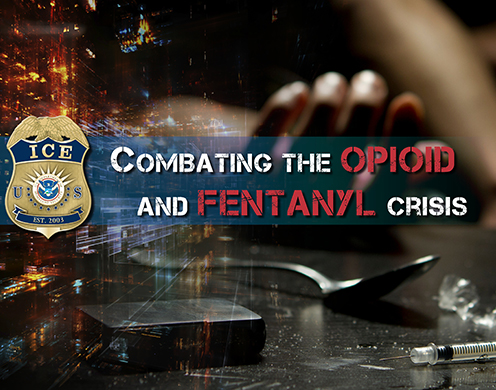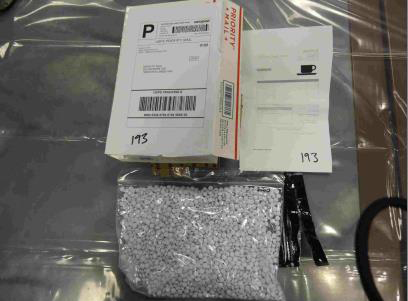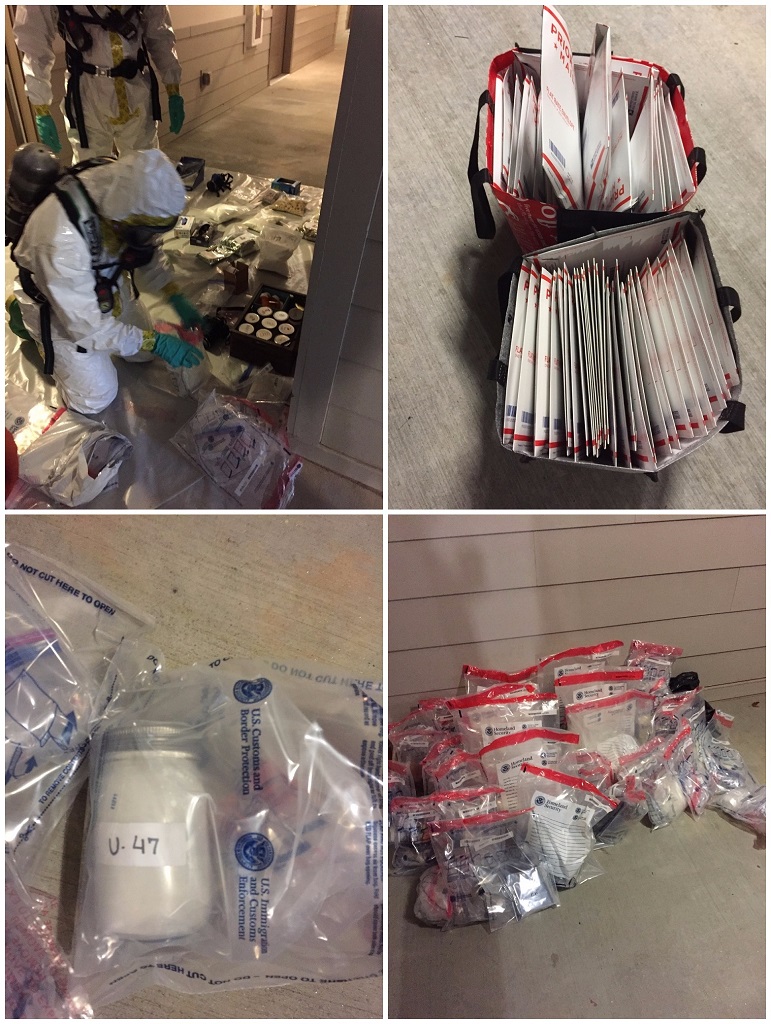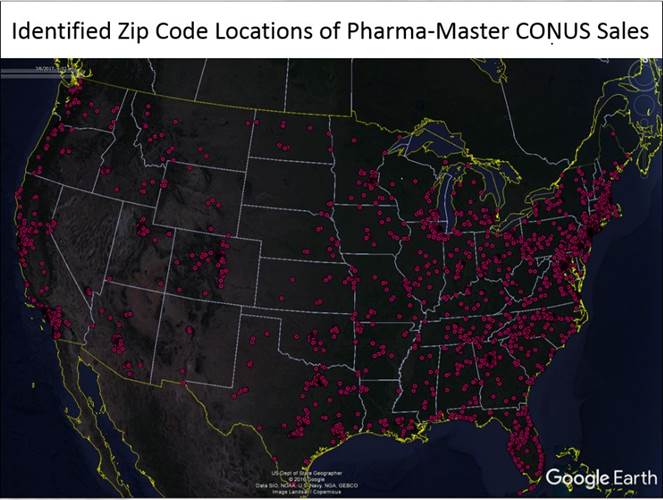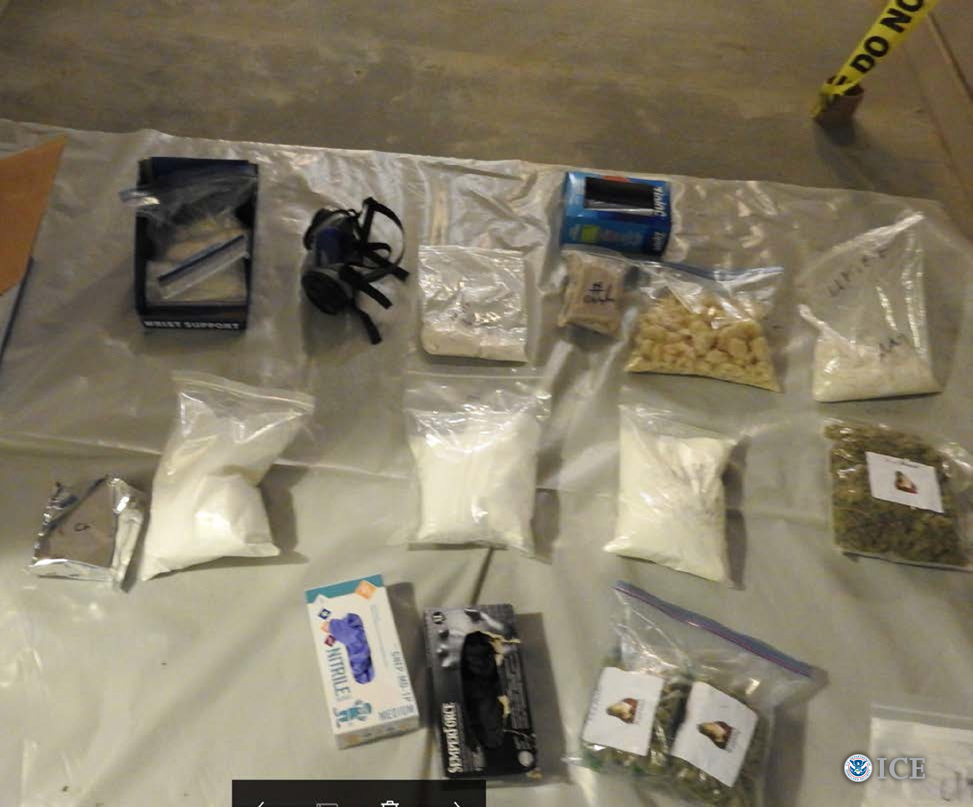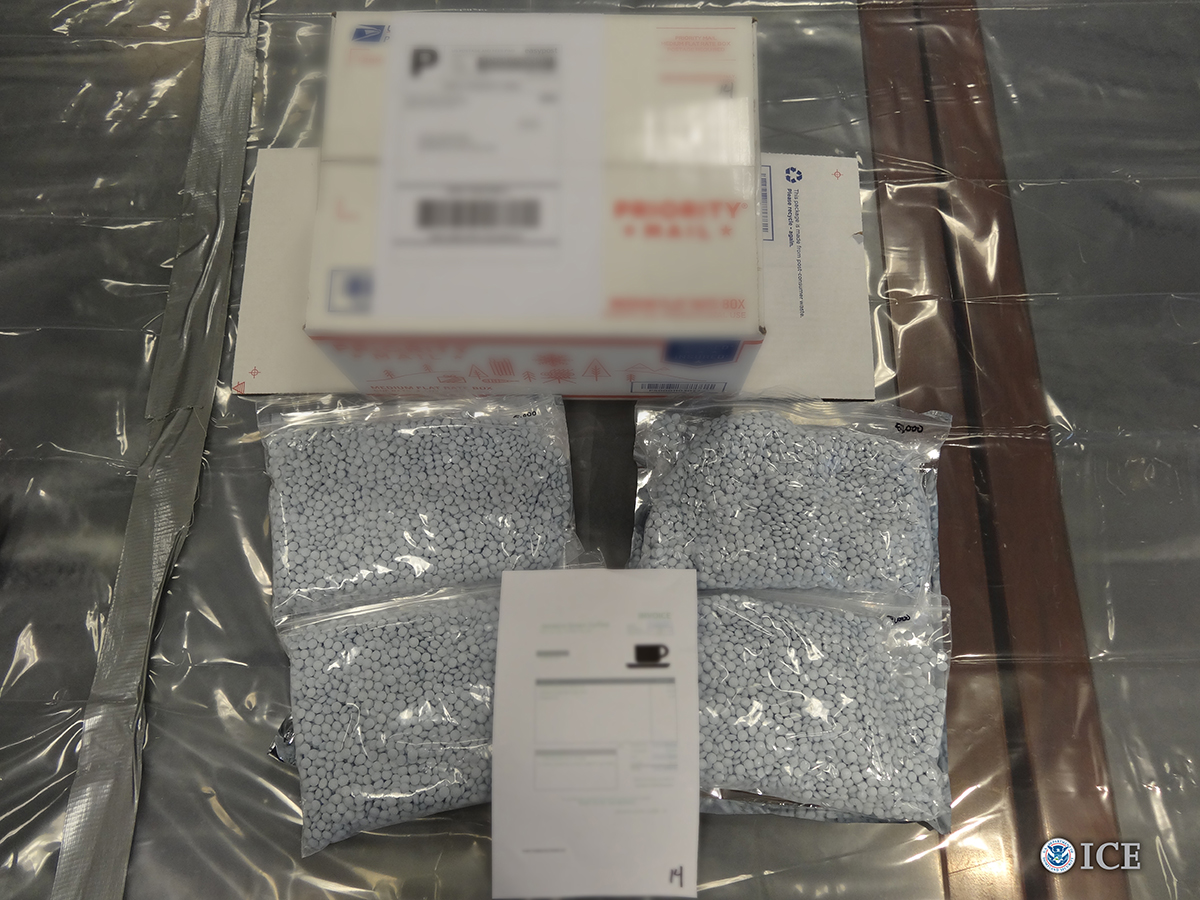Archived Content
In an effort to keep ICE.gov current, the archive contains content from a previous administration or is otherwise outdated. This information is archived and not reflective of current practice.
ICE highlights role in combating opioid supply in Northern Virginia
WASHINGTON – U.S. Immigration and Customs Enforcement (ICE) Homeland Security Investigations (HSI) led a briefing with federal and local law enforcement partners to discuss the coordinated enforcement strategies being used in Northern Virginia to reduce the supply of fentanyl and other opioids. The briefing, held at ICE’s Cyber Crimes Center in Fairfax, Virginia, came in response to President Donald J. Trump’s declaration of the opioid crisis as a public health emergency and the implementation of the White House Comprehensive Opioid Response Initiative announced yesterday.
Acting Executive Associate Director Derek Benner led today’s briefing, where he announced that HSI’s Cyber Crimes Center will expand its efforts to offer investigative support and dark net training to state, local, and international partners. Benner also discussed plans to enhance training focused on illicit payment networks and financial transactions associated with fentanyl smuggling and distribution.
Joining Benner for the event were Congresswoman Barbara Comstock (VA-10), First Assistant U.S. Attorney for the Eastern District of Virginia Tracy Doherty-McCormick, Acting Director of the Office of National Drug Control Policy Richard Baum, HSI Washington, D.C. Special Agent in Charge PJ Lechleitner, HSI Baltimore Special Agent in Charge Andre Watson, and local law enforcement leaders from Maryland and Virginia.
Fentanyl, a synthetic opioid, is 50 times more potent than heroin and 100 times more potent than morphine. According to Drug Enforcement Administration (DEA) estimates, one kilogram of fentanyl can produce 1 million to 1.5 million pill dosage units. The Centers for Disease Control estimates that more than 20,000 Americans were killed by fentanyl and fentanyl analogues in 2016, and that number continues to rise.
The efforts of ICE and its law enforcement partners to disrupt the supply of these deadly substances are an important complement to the president’s commitment to public health and safety, as detailed in yesterday’s announcement from the White House.
Earlier this month two cases worked by federal, state and local law enforcement agencies in Mississippi and North Dakota resulted in federal indictments against two Chinese nationals and their North American based traffickers and distributors for separate conspiracies to distribute large quantities of fentanyl and fentanyl analogues and other opiate substances in the United States.
Briefing participants included: Deputy Chief Samir Patel, Prince George’s County Police Department; Lt. Colonel David L. Ruel, Chief of the Criminal Investigations Bureau for the Maryland State Police Department; Sheriff Chapman, Loudon County Sheriff’s Office; Major Fiano, Loudoun County Sheriff’s Office; Sheriff Mosier, Fauquier County Sheriff’s Office; Lieutenant Joe Kantor, Arlington Police Department; and Chief Maggie DeBoard, Herndon Police Department.


